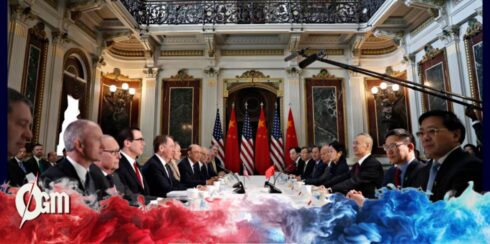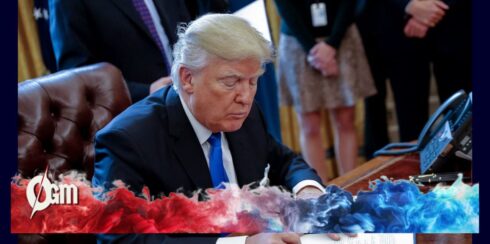After weeks of heated debate and political brinkmanship, the United States narrowly avoided a government shutdown with the passage of a last-minute spending bill. The contentious legislation, signed into law by President Joe Biden early Saturday morning, underscores the divisions between Democrats and Republicans while setting the stage for further legislative battles under President-elect Donald Trump.
Biden Signs Bill to Prevent Shutdown, But Controversy Persists
President Joe Biden approved the emergency spending package shortly after the Senate passed it by an overwhelming 85-11 vote. The House of Representatives had earlier cleared the measure with a bipartisan 336-34 majority. The legislation funds government agencies at current levels until March 14, averting a crisis that could have disrupted millions of lives.
Without this deal, federal employees faced the grim prospect of working without pay or being placed on unpaid leave. Public services, from national parks to federally-funded preschool programs, would have been severely curtailed. The stakes were even higher as the government grapples with $36 trillion in national debt, with interest payments now exceeding national security expenditures.
Contentious Provisions and Trump’s Role in the Debate
The spending bill, pared down to 118 pages from an initial 1,547-page proposal, excluded several Democratic priorities, including healthcare reforms, deceptive advertising protections, and the first pay raise for lawmakers since 2009. However, it retained $100 billion for disaster relief and $10 billion in aid for farmers. Notably, the bill allocates funds to rebuild Baltimore’s Francis Scott Key Bridge, which suffered catastrophic damage earlier this year.
President-elect Donald Trump, alongside tech mogul Elon Musk, played a pivotal role in reshaping the debate. Both urged Republicans to reject the earlier, more expansive version of the bill, arguing against lifting the federal borrowing limit. Their intervention signaled the potential legislative battles to come when Trump assumes office on January 20.
Republican Leadership Under Pressure as New Era Looms
House Speaker Mike Johnson faced significant scrutiny from within his own party during the negotiations, raising questions about his leadership ahead of a crucial January 3 vote to retain his position. Johnson, however, expressed optimism about the future, stating, “We are set up for a big and important new start in January.”
Musk, a vocal critic of government overspending, praised Johnson’s handling of the negotiations. “The Speaker did a good job here, given the circumstances,” Musk posted on his platform, X, highlighting the transition from a “bill that weighed pounds to a bill that weighed ounces.”
Legislative Battles Ahead as Trump Prepares to Take Office
The absence of a debt ceiling provision in the final bill marks a significant victory for Republican fiscal conservatives, but it sets the stage for heated debates in 2025. Republican leaders have promised to revisit the issue in the new year, signaling potential clashes between Trump’s administration and a divided Congress.
Democratic minority leader Hakeem Jeffries criticized last-minute Republican amendments but hailed the bill’s passage as a win for ordinary Americans. “House Democrats have successfully stopped the billionaire boys club,” he declared. Meanwhile, Republican lawmakers expressed optimism about advancing their agenda with Trump’s inauguration and GOP control of both chambers of Congress.
As the nation braces for this political shift, the spending bill serves as a reminder of the challenges facing bipartisan governance in an increasingly polarized environment.
Historical Context: Shutdowns and Economic Impact
Government shutdowns are not new in the U.S., with President Ronald Reagan presiding over eight during his tenure. Donald Trump’s presidency saw three, including the longest in U.S. history—a 35-day shutdown in 2019 due to a stalemate over border wall funding. According to the Congressional Budget Office, that shutdown reduced economic output by $11 billion, with $3 billion permanently lost.
The U.S. system’s unique structure, where budget approvals don’t equate to votes of confidence in the government, often leads to such stalemates. This dynamic is expected to continue as Trump prepares to take office, with Republicans set to control both chambers of Congress.
What Lies Ahead for the New Administration in the U.S.?
The passage of the American Relief Act, 2025, provides a temporary reprieve, but it serves as a prelude to the political and legislative battles that lie ahead. Trump’s call for a debt ceiling suspension will likely dominate early 2025 debates, alongside Republican efforts to roll back spending on social and environmental programs.
With Republicans unified behind Trump and Musk advocating aggressive cost-cutting measures, the stage is set for significant political showdowns. As Speaker Johnson stated, “Having gotten this done now as the last order of business for the year, we are set up for a big and important new start in January.”
Whether the spirit of compromise can hold remains uncertain, but for now, the government stays open, and critical services continue to function.














